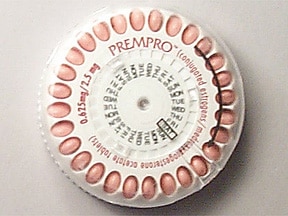
Prempro (Provera) is one of the first drugs developed to relieve the symptoms associated with menopause, specifically andropause, hot flashes, night sweats, and decreased libido. In the past several years, Prempro has been studied for its potential use in treating various health conditions in postmenopausal women, including the treatment of endometrial cancer and breast cancer. However, some patients experience adverse side effects that may prevent the approval of Prempro as a treatment option in many instances. Prempro is marketed as an oral contraceptive pill (OCP), and some patients find that they respond well to this medication, especially when taken during the menopausal period.


The FDA approved Prempro as a hormone replacement therapy (HRT), which means that it is used to treat the symptoms of menopause by acting on hormones that cause changes in menopause-related symptoms. Medroxyprogesterone acetate (also known as Prempro(R)), the active ingredient in Prempro, is an oral contraceptive, which means that it reduces estrogen levels and can be used to treat symptoms associated with menopause. The active ingredient is an estrogen-like chemical called ethinylestradiol or ETS. A study of Prempro patients found that ETS had no significant effect on bone density and other hormones, and therefore the effectiveness of the medication was not supported by clinical studies. Although the side effects were mild, Prempro patients who did report side effects experienced increased heart rate and nausea. Another study of Prempro patients found that some women had an increased risk of stroke while using the drug, but this risk was unrelated to estrogen levels. There are no known long-term risks from taking Prempro, but the risk of side effects varies from person to person.
Many of Prempro's clinical trials did not show that it could reduce breast cancer, but there are still some questions about its safety for women with a family history of breast cancer. Some researchers think that the risk of increased risk of stroke or other serious medical problems could be related to the fact that ETS is an ETS derivative, and therefore the drug is absorbed directly into the bloodstream. Other researchers suggest that ETS may increase a woman's risk of heart attack and stroke due to the interaction of ETS and a substance called nitric oxide in blood vessels.
Flovent HFA Spiriva Serc Prempro Colcrys Abreva Pet Meds Prescription Drugs Over The Counter Drugs Nascobal Nasal Zovirax Deferasirox Hydroxychloroquine Insulin Syringes Myleran Xifaxan Silenor